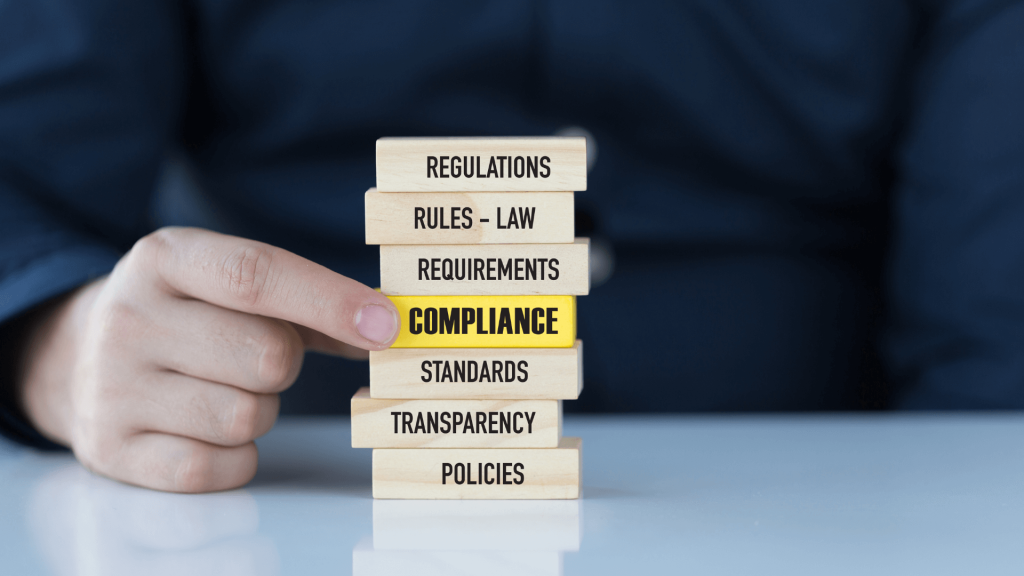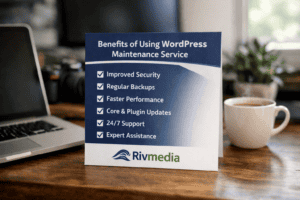Table of Contents
- Understanding Business Structures
- Conducting Market Research
- Creating a Business Plan
- Funding Your Business
- Registering Your Business
- Setting Up a Business Bank Account
- Legal Requirements and Compliance
- Insurance
- Setting Up an Accounting System
- Hiring Staff
- Operational Plan
- Marketing Strategy
- Launch and Beyond
- Sustainability and Growth
- Intellectual Property and Branding
- Business Premises and Location
- Health and Safety Regulations
- Quality Control and Customer Service
- Competitive Analysis
- Periodic Business Review
- Tax Planning and Financial Review
- Exit Strategy
- Closing Remarks
Embarking on the journey to establish a small business can be both rewarding and challenging. With the right preparation and guidance, you can navigate this complex process successfully. This guide aims to provide you with a detailed roadmap to starting a small business in the UK, outlining legal requirements, financial planning, and operational considerations.

Understanding Business Structures
Choosing an appropriate business structure is a crucial step that impacts tax, liability, ownership control, and other factors. The commonly adopted structures in the UK include Sole Trader, Partnership, and Limited Company.
| Business Structure | Tax Implication | Liability |
|---|---|---|
| Sole Trader | Income Tax on profits | Unlimited personal liability |
| Partnership | Each partner pays Income Tax on their share of profits | Joint liability for debts |
| Limited Company | Corporation Tax on profits | Limited liability up to share value |
To register your business, you’ll need to inform HM Revenue and Customs (HMRC). Visit their official page for a comprehensive list of legal procedures.
Conducting Market Research
Understanding your target market is essential for your business plan and long-term strategy. Employ methods such as surveys, interviews, and focus groups to gather insights about customer needs and preferences.
Creating a Business Plan
Your business plan serves as the blueprint for your business operations. This should cover your business goals, market analysis, financial plan, and marketing strategy. Various tools and templates are available to assist in this process. The UK Government website offers resources that can be particularly helpful.
Funding Your Business
While some businesses require minimal start-up capital, others may need substantial investment. Evaluate your options carefully, which might range from personal savings and bank loans to venture capital and crowdfunding. Keep a meticulous record of your expenses and investments; the British Business Bank can be a resourceful guide for diverse financial solutions.
Registering Your Business
Once you’ve settled on a business structure and have your funding in place, it’s time to make your business official. Registration procedures vary depending on your chosen business structure, but generally, you’ll need to register with Companies House and acquire a unique taxpayer reference (UTR) from HMRC. The Companies House website provides a straightforward guide to online registration, which is mandatory for Limited Companies.
Setting Up a Business Bank Account
A business bank account is essential for managing your enterprise’s finances separately from your personal assets. Shop around for a bank that offers favourable terms for small businesses. Many UK banks offer specialised accounts with perks like free transactions for an initial period or built-in accounting software. Once you’ve selected a bank, you’ll usually need to provide business identification and financial records to open an account.
Legal Requirements and Compliance
Understanding and fulfilling your legal obligations is crucial for the sustainability of your business. These responsibilities span several areas, including employment law, trading regulations, and data protection.
Among the first tasks are acquiring necessary permits or licenses, and fulfilling health and safety standards. You can consult the UK Government Business and Self-Employed section for a checklist of legal requirements pertinent to UK businesses.
Insurance
Having the right insurance policies is not only a legal requirement but also a sensible risk mitigation strategy. The type of insurance you’ll need can vary, but commonly required policies include public liability insurance, employers’ liability insurance, and professional indemnity insurance. Agencies such as the Association of British Insurers can guide you in selecting the most appropriate coverages for your business.
Setting Up an Accounting System
Proper accounting and record-keeping are vital for both regulatory compliance and effective financial management. You have the option of managing accounts in-house or outsourcing to a professional firm. Software solutions like QuickBooks or Sage can also help in automating and simplifying the accounting process.
Hiring Staff
Once your business is legally established, you may need to hire staff to support operations. UK employment law sets forth various obligations for employers, including fair recruitment practices, employee rights, and payroll obligations. You are also responsible for National Insurance contributions and must set up a PAYE (Pay As You Earn) system for income tax. Consult the Employing People section on the UK Government website for comprehensive guidance on this subject.
Operational Plan
At this point, it is crucial to implement your operational plan, encompassing supply chain management, production, delivery services, and customer relationship management. Technologies such as inventory management software or CRM platforms can streamline these operations. For example, platforms like Salesforce offer customer relationship management solutions tailored for small businesses.
Marketing Strategy
Promoting your business is essential for attracting customers and establishing a brand identity. Your marketing strategy should align with your business objectives and could include a mix of digital marketing, traditional advertising, and public relations. A detailed market analysis will inform your strategy, helping you decide whether to focus on social media, search engine marketing, or other channels. Resources like the Chartered Institute of Marketing offer valuable insights into modern marketing techniques.
Launch and Beyond
After months of preparation, you’re finally ready to launch your small business. A successful launch event, whether online or physical, can generate buzz and attract an initial customer base. However, the work is far from over. Continuous monitoring and adaptation are key to long-term success. Use key performance indicators (KPIs) to measure aspects like customer engagement, sales performance, and operational efficiency. These metrics will inform necessary adjustments to your business strategy.
Sustainability and Growth
Long-term success hinges on your ability to adapt and grow. Scale your business by diversifying product lines, expanding into new markets, or collaborating with partners.
Always be alert to changes in consumer trends, technological advancements, and market conditions. Trade associations, such as the British Chambers of Commerce, offer resources and networking opportunities that can aid in your growth journey.
Intellectual Property and Branding
Protecting your intellectual property (IP) is vital for maintaining a competitive edge and strengthening your brand. The UK Intellectual Property Office provides mechanisms to protect various forms of IP, including patents, copyrights, and trademarks. If your business relies heavily on a unique product, service, or branding, it’s advisable to consider IP registration. Learn more from the UK Intellectual Property Office.
Business Premises and Location
The location of your business can have a substantial impact on its success. Consider factors like footfall, accessibility, and proximity to competitors when selecting a location. Also, be aware of zoning laws that may impact your ability to conduct certain types of business in specific areas. When it comes to leasing commercial space, be sure to read contracts carefully and consider seeking legal advice.
Health and Safety Regulations
Compliance with health and safety regulations is not just a legal requirement but also a moral obligation to your employees and customers. Requirements can range from basic workplace ergonomics to complex procedures for handling hazardous materials. Regular audits and training sessions can ensure continued compliance. The Health and Safety Executive (HSE) provides a wealth of information on this topic.
Quality Control and Customer Service
Maintaining high standards of quality in products or services is critical for customer satisfaction and brand reputation. Implement quality control measures that include regular checks at various stages of production or service delivery. A well-trained customer service team can not only resolve issues efficiently but also gather feedback for continual improvement.
Competitive Analysis
Understanding your competition is crucial for positioning your business strategically. Regular competitive analysis can offer insights into market trends, consumer expectations, and emerging technologies. This process can inform strategic decisions, from pricing and marketing to product development and customer service enhancements.
Periodic Business Review
Setting up your business is just the beginning. As you operate, it’s crucial to periodically review your business plan and adjust as needed. Market conditions change, technologies advance, and customer preferences evolve. Periodic business reviews allow you to reassess your strategies and make data-driven decisions for sustained growth.
Tax Planning and Financial Review
Effective tax planning can optimize your revenue and help avoid legal complications. Keep abreast of tax allowances and incentives for small businesses in the UK.
Financial reviews, perhaps conducted quarterly, can provide insights into your business’s fiscal health, enabling better planning and forecasting. Consulting with a chartered accountant can give you specialized advice tailored to your business.
Exit Strategy
While you’re focused on building and growing your business, it’s prudent to have an exit strategy. Whether through a business sale, merger, or passing the enterprise to a family member, having a well-thought-out exit plan can maximize the value you get from the business when it’s time to move on.
Closing Remarks
Starting a small business in the UK is a significant undertaking that requires careful planning, execution, and ongoing management. By following this comprehensive guide, you arm yourself with a robust foundation to navigate the complexities and nuances of entrepreneurship. Each section aims to equip you with the essential knowledge and resources needed at various stages of your business journey—from inception and legal compliance to growth and sustainability.
Continuous learning, adaptation, and a keen eye for opportunity are pivotal for long-term success. While this guide provides an extensive roadmap, it’s vital to remain engaged with industry trends, updates in regulations, and advancements in technology.
Wishing you the best of luck in your entrepreneurial journey, may your business not only survive but thrive in the competitive UK marketplace.











